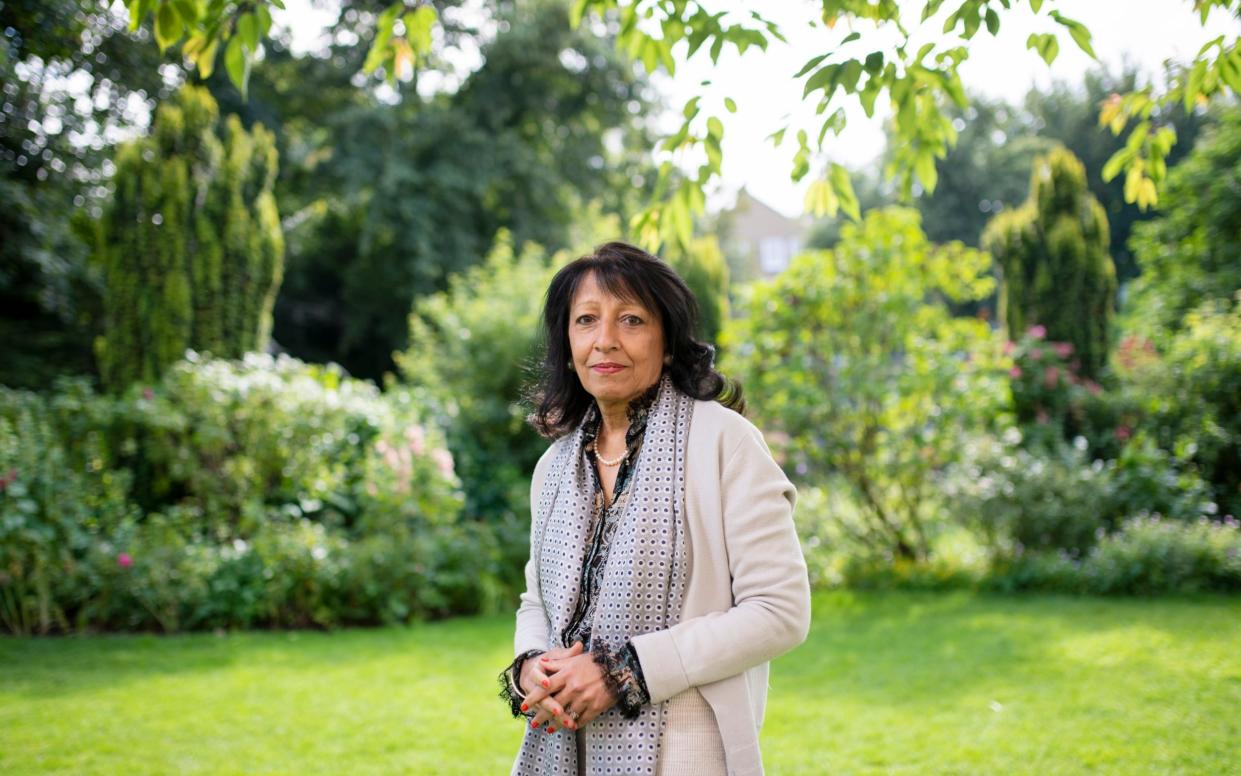Stonewall accused of ‘targeting’ EHRC boss with ‘unreasonable complaints’ over trans stance

A coalition of gender-critical groups have accused Stonewall of “targeting” the female boss of Britain’s equalities watchdog.
Led by women’s rights organisation Sex Matters, which believes biological sex takes precedence over self-identified gender, the 39 groups said Baroness Kishwer Falkner, chairwoman of the Equalities and Human Rights Commission, was being attacked for taking action to protect women.
They said Stonewall had subjected her to the same sort of “unreasonable, vexatious complaints” used to harass ordinary women at work.
The groups have signed a letter to the Global Alliance of National Human Rights Institutions (Ganhri), which has been persuaded by organisations such as Stonewall to carry out a “special review” into the EHRC, claiming it is anti-trans.
Stripped of top-level UN accreditation
The review could see it stripped of its top-level UN accreditation.
In their letter, the groups accused Stonewall of a “pattern of reprisal, harassment and intimidation” against the Commission.
“Kishwer Falkner has been targeted by the same kind of unreasonable, vexatious complaints used to harass and intimidate so many ordinary women at work,” she said.
“Moreover, this has happened precisely because the EHRC acted, within its mandate, to protect such women from being targeted in this way.”
Last year, Baroness Falkner was placed under investigation after 12 current or former staff members at the Equality and Human Rights Commission made dozens of allegations against her.
Details of the complaints were never made public, but her supporters believe they were sparked by the position her watchdog had taken on trans rights. The investigation ended with her keeping her position.
Stonewall and other groups applied to Ganhri for the EHRC to be stripped of its UN accreditation as an “A” status national national human rights organisation.
They complained after the EHRC advised the government on the protected characteristic of sex in the Equality Act 2010, in which it said transgender people could be legitimately excluded from single-sex services if the reasons were “justifiable and proportionate”.
Also signed by other groups
The letter from Sex Matters was also signed by other groups including the Women’s Rights Network, the LGB Alliance, and Lesbian Labour.
It said: “Stonewall is dissatisfied because the EHRC is doing its job, and is demonstrating independence from Stonewall.
“The EHRC’s job is to protect everyone’s rights, including those with ‘gender critical’ beliefs.
“Ganhri has fallen into the trap of responding to unreasonable complaints about gender-critical speech in the same one-sided fashion that has been found to be harassment and discrimination in these recent cases. We urge you to rectify this injustice.”
It added: “It is in fact entirely reasonable to challenge the idea that any men can become women, and what is more, the Equality Act protects our right to do so, and not to be harassed for it.
“Subsequent legal cases have demonstrated that an organisation or regulator conducting disciplinary procedures against someone for their protected views can itself be harassment.”
‘We are disappointed’
In November, Lady Falkner wrote in the Telegraph: “We are disappointed that we will have to defend our accreditation status in this way and remain very confident that we will be able to respond robustly to any questions the SCA (special committee on accreditation at Ganrhi) may have.
“We have already written to the committee to highlight inaccuracies in the submissions made against us and to strongly reject claims that we are not compliant with the Paris principles.
“We take great pride in our independence from government and continue to demonstrate our impartiality through our willingness to robustly challenge them.”
A spokesman for Stonewall said: “Stonewall was one of dozens of LGBTQ+, human rights and disability charities that submitted evidence to Ganhri about the compliance of EHRC with the Paris Principles.
“Ganhri made several clear recommendations on the need for EHRC to strengthen its work to promote and protect the rights of LGBTI people, migrants and asylum seekers, people with disabilities and issues with racial discrimination, in line with international human rights standards. The issues raised by civil society are wide and serious, which this letter fails to acknowledge.”